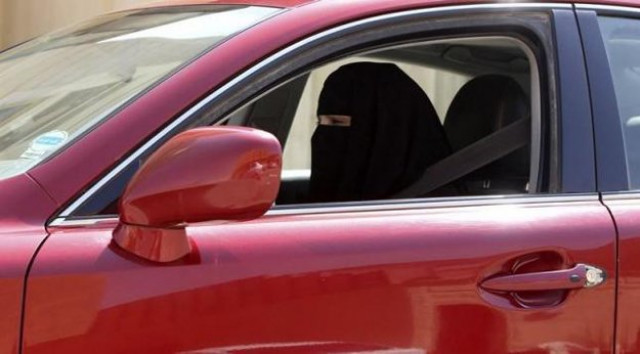Saudi FM says 'be patient' on women's rights
"When it comes to women's driving, this is not a religious issue, it's a societal issue," says Adel al-Jubeir

A woman drives a car in Saudi Arabia October 22, 2013. PHOTO: REUTERS
"When it comes to issues like women's driving, this is not a religious issue, it's a societal issue," Adel al-Jubeir told an audience at the Munich Security Conference.
He said it was unfair to fixate on the issue of women drivers, given the ultra-conservative Islamic kingdom's efforts to educate girls.
"We went from no schools for women in 1960 to universal education, to where today 55 percent of college students are women," said Jubeir.
 Saudi Arabian Foreign Minister Adel bin Ahmed Al-Jubeir arrives at the Bayerischer Hof hotel to participate at the 52nd Munich Security Conference (MSC) in Munich, southern Germany, on February 12, 2016. PHOTO: AFP
Saudi Arabian Foreign Minister Adel bin Ahmed Al-Jubeir arrives at the Bayerischer Hof hotel to participate at the 52nd Munich Security Conference (MSC) in Munich, southern Germany, on February 12, 2016. PHOTO: AFP"Some of our top doctors and engineers and lawyers and business people are women. The issue is one that is evolving just like it is in other countries."
He compared Saudi Arabia to the United States, arguing that it took 100 years after America's independence before women were given the right to vote, and another 100 years for it to elect its first female parliamentary speaker.
Six education dept employees killed in Saudi Arabia shooting rampage
"I'm not saying 'Give us 200 years'. I'm saying 'be patient'," said Jubeir.
"We hope that in the modern world with technology and communications that this process is accelerated, but things take time. We can't expect to rush things."
Restrictions in Saudi Arabia remain some of the toughest in the world with women forced to cover themselves in black from head to toe in public.
For the first time in December women were allowed to stand for election to local councils.
Human Rights Watch has criticised Saudi Arabia's male guardianship system which forbids women "from obtaining a passport, marrying, travelling, or accessing higher education without the approval of a male guardian".



















COMMENTS
Comments are moderated and generally will be posted if they are on-topic and not abusive.
For more information, please see our Comments FAQ